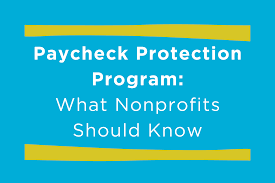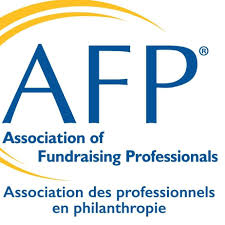22,000 nonprofits will close their doors for good in the next 3 years? Michael Towner, Iconic Legacy7/23/2020  It is projected that 22,000 nonprofits will close their doors for good in the next 3 years as a result of the economic crisis. That's the median of several scenarios projected by Candid; it assumes the economic downturn will last 24 months. The 22,000 figure represents a failure rate of 7% among the 315,698 U.S.-based nonprofits whose financial data Candid examined in a new study. Dan Parks reports the new paper presents a less dire forecast than many experts have predicted. "The majority of nonprofit organizations are positioned to weather this storm," the report states. Some charities are hailing the Paycheck Protection Program as a financial saviour, but others say it provided only a brief respite from layoffs and other cost-cutting measures. According to new estimates from the Dorothy A. Johnson Center for Philanthropy at Michigan’s Grand Valley State University, the program saved 4.1 million nonprofit jobs, about a third of all nonprofit jobs in the nation. The study estimated that about 40 percent of eligible nonprofits received a loan and that nearly two-thirds of eligible nonprofit jobs were protected by PPP funds. The study noted that many smaller nonprofits in particular may have missed out by either not applying for loans or not successfully filling out applications. Which kinds of groups have gotten the money so far? Religious organizations, followed by elementary and secondary schools, and civic, social, or social-advocacy organizations, were the most common recipients of PPP loans, According to the data, 42,462 nonprofit organizations received loans of between $150,000 and $10 million. The goal of the Paycheck Protection Program is to encourage employers to keep their workers on the payroll during the coronavirus pandemic. If employers maintain their work force, the loans are mostly forgivable. Of those 42,462 nonprofits, 9,238, or 21.8 percent, were religious organizations; 5,647, or 13.3 percent, were elementary and secondary schools; and 6.3 percent were civic, social, or social-advocacy organizations.  In a survey conducted by the Association of Fundraising Professionals members conducted in May, 2% of respondents said they had been laid off. 20% said their organizations had laid off staff, 23% percent said they had instituted furloughs, and 18% had cut staff pay. Groups that have long relied on in-person fundraising events or revenue from ticket sales are making tough decisions about which fundraising roles are indispensable. Organizations have not eliminated fundraising positions at the same pace that they have laid off people in other departments, says Mike Geiger, President of the Association of Fundraising Professionals. "So far, our numbers are really low in terms of fundraisers being laid off," he says. "I think that is because organizations understand the importance of keeping revenue-generating positions. Fundraisers are the bridge between the donor and the cause. If you break that bridge, if you destroy that bridge, you lose that connection. I think that a lot of CEOs get that, and they might get it now more than they ever did." But even for CEOs and other leaders who understand and value their fundraisers, making staffing decisions when revenue is drying up is a tough balancing act. What is clear is that some organizations and fundraising teams have been harder hit than others. The American Cancer Society has long relied on large in-person fundraising events. And Covid-19 has hit that model especially hard. As events had to be postponed and ultimately canceled or shifted online, the Cancer Society quickly realized it would have to cut costs. The organization did not go to personnel right away, says Mike Neal, the senior executive vice president for field operations. First, it looked to reduce expenses for things like meetings and travel, and postponing events like the Relay for Life walks resulted in some cost savings. But in June, the charity laid off around 1,000 staff members. About 200 were fundraisers, Neal says. The group expects to bring in around $200 million less in 2020 than it had forecast before the coronavirus struck. Smaller groups are also making these tough choices. Cherian Koshy is director of development at Des Moines Performing Arts, an organization that presents visiting plays and other performances — all of which have been canceled or postponed indefinitely. Despite "exceptional" fundraising in recent months, there is no getting around the fact that the organization's business model is partially driven by the money it earns from ticket sales. "Even with a lot of fundraising that has happened over the course of these last few months and the generosity of our donors, it's not enough to keep our entire staff at that total 100 percent, especially when we don't have a date to reopen," he says. So far, Koshy has not had to lay anyone off, but he has had to cut hours. As of July 1, his development team of five people is working the equivalent of 3.5 full-time jobs. "When we talk about lifeboat ethics, there's no good decision about who needs to be tossed off the boat and who gets to stay on," he says. "Everybody's roles are essential in some nature; otherwise, they wouldn't be on the boat in the first place." At some organizations, veteran development directors and senior leaders are getting virtual pink slips, too — delivered via Zoom or over the phone. Barbara Perlov was laid off from her position as director of foundation and government relations at the Boys' Club of New York at the end of March.
The organization has historically relied on wealthy individuals and events, but Perlov was leading the charge to increase support from institutional donors. And even through the pandemic, she saw great potential. She had been working to build relationships with grant makers. Getting the news of her layoff "was shocking," she says. "No doubt about it." "Just getting my head wrapped around the fact that my job was ending was pretty emotional," she says, "not to mention, the personal things going on in my life that I needed to address: what I was going to do about health care, about applying for unemployment." Fundraisers — those who are recently unemployed and those who are plugging away from their home offices — are facing compounding stressors right now. Several fundraisers have lined up part-time consulting work to pay the bills and support organizations in their efforts to raise money through the crisis.
0 Comments
Leave a Reply. |
BLOGArchives
January 2025
Categories
All
|